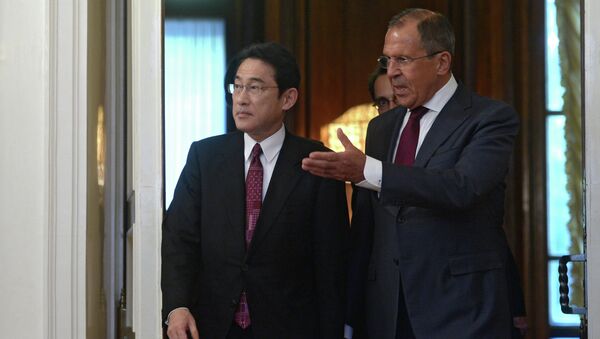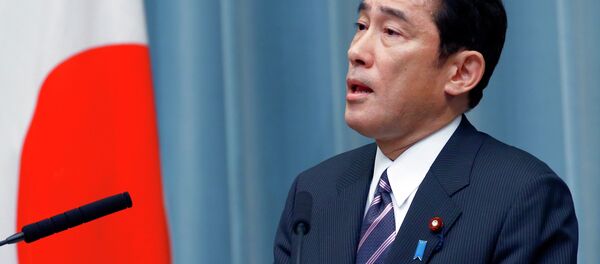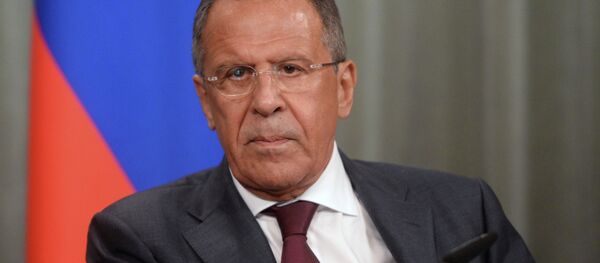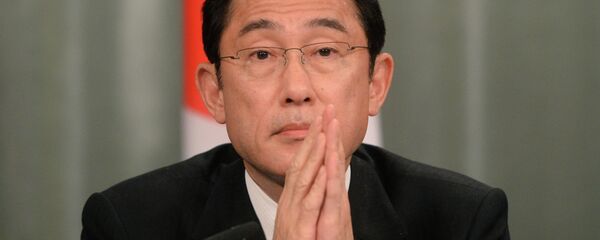Lavrov met on Monday in Moscow with his Japanese counterpart Fumio Kishida to discuss bilateral relations and common actions on the global arena.
"We agreed to hold in the next few months a series of consultations between respective foreign ministries on issues of non-proliferation and disarmament in the Middle East and North Africa," Lavrov said.
"We agreed to hold in the next few months a series of consultations between respective foreign ministries on issues of non-proliferation and disarmament in the Middle East and North Africa," Lavrov said.
The 1995 Non-Proliferation Treaty (NPT) Review Conference adopted a resolution on the Middle East calling on all signatories to the treaty to support the region in establishing a nuclear-weapon-free zone.
First put forward by Egypt in 1990, the proposed agreement to bolster the NPT seeks to advance the Middle East peace process and promote nuclear disarmament as a whole.
The Russian Foreign Ministry’s Department for Non-Proliferation and Arms Control Director, Mikhail Ulyanov, projected the five-year mandate on the Middle East nuclear weapon free zone would only be renewed at the next review conference in 2020.
Lavrov also stated that Moscow will maintain a high-level political dialogue with Tokyo.
"We have expressed mutual interest in the continuation of the political dialogue, especially at the highest level. This year, there will be several opportunities for this. The leaders of our countries will participate in a number of events, including the summit of G20 and APEC," Lavrov.
“The work will be difficult, there are still great differences in the positions of the parties. But we have confirmed the attitudes of Russia and Japan in accordance with the instructions of our leaders to look for solutions that will be acceptable and will be supported by the people of our countries,” Lavrov said.
He added that Russia is interested in reversing negative trends in economic cooperation with Japan.
"We are interested in promoting efforts aimed at reversing negative trends in trade and economic relations," Lavrov said.
Lavrov said that aside a meeting of the intergovernmental commission set to take place in near future, the countries are planning to hold a series of other meeting on economic issues.
Russian Foreign Minister Sergei Lavrov noted that any progress in talks on peace treaty between Russia and Japan is possible only after Japan recognizes post-war historical reality.
"It is the historical aspect of this problem, which we inherited from the Second World War, that creates the most serious obstacle on the way to its settlement," Lavrov stressed.
Japan and Russia never signed a permanent peace treaty following the end of the Second World War due to long-lasting disagreement over four islands, which Russia calls the Southern Kurils and Japan the Northern Territories. The disputed islands, located in the Sea of Okhotsk, were given to the Soviet forces at the end of WWII but are still claimed by Japan.
Kishida arrived to Russia on Sunday for a 3-day visit. On Tuesday, Kishida will participate as a co-chair in the session of the Russian-Japanese Intergovernmental Committee on Trade and Economic Issues. This committee was established in 1994 to discuss bilateral trade and economic issues.
Relations between the two nations soured after Japan joined the West’s anti-Moscow sanctions following the Crimean referendum to join Russia and the outbreak of the conflict between government forces and independence militias in eastern Ukraine.




